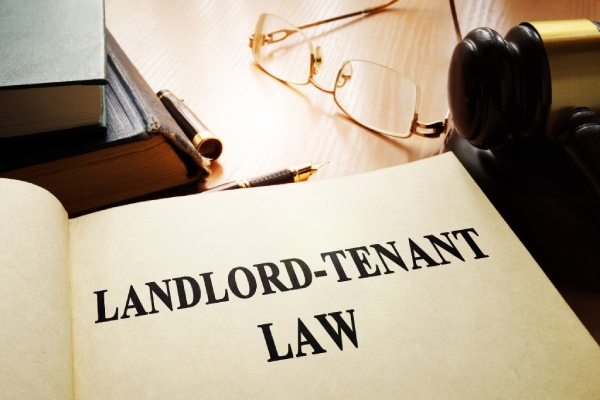The relation between a landlord and a tenant is hardly harmonious; disputes are very common particularly, due to the old socialist law regime and conservative notion about the authoritative role of a landlord. This is more prevalent in India across all the states. The Rent Control Act was enforced to protect the poor migrants from rural areas at a time when there was an actual housing shortage. Though things are changing fast, still the tenants, in many instances, are deprived from accessing many rights, which they are supposed to enjoy. In our article, we have tried to describe the tenants’ rights in an outlined detail to guide the tenants about their legal privileges under the law as well as the directives of law in the light of common tenant-landlord disputes.
Your landlord may take certain actions which are just unlawful. It happens in many cases. The tenants seem to be helpless in these critical situations. But if you know the tenant act, the course of the event may take a different turn. Let’s know first what are those illegal actions, where you as a tenant can seek protection under the tenant law.
Tenant means any person who is responsible for paying rent for a premise maybe that is used for residential need or for some commercial purpose. In residential housing accommodation, it includes spouse, children, or any member who has been living as a member of the tenant’s family as their home. Rent control act restricts the power of the landlord and gives reasonable powers to the tenants for the purpose of protecting both the tenants and the landlords from deceit. Rent Control Act is the combination of many acts, and all the Indian states have their own acts, which may differ but crux is almost the same.
The tenancy is of two types: the contractual tenancy, and the statutory tenancy. Contractual tenants are those who are entitled to enjoy tenancy during the term mentioned in the contract. The Statutory tenancy is the tenancy when the tenant resides in the property even after the expiration of the contract.
People who could not afford to buy new house, they prefer for renting a house. Before you go to the rental house, you need to know its pros and cons, refer The Pros & Cons of Renting a House.
What are the Rights of a Tenant?
Rent Control Act discusses the tenant’s rights and restrictions as follows:
01. Fixation of Fair Rent Under the Tenant Act
One of the major purposes of the rent act was to prevent exploitation of tenants by landlords who may charge unreasonable and exorbitant rent amount exploiting the scarcity of houses. The act therefore, describes that the landlord could not charge more than fair market rent, which was defined as the Standard Rent. The act provided methods to calculate the Standard Rent.

The landlord cannot charge per year rent, which should not cross the benchmark of 15% of the market value of the property, including amenities for residential buildings, while he can charge a maximum of 25% for non-residential buildings. If the rent is higher than the maximum limit, the tenant reserves all the right for going to the Rent Control Court, and the court can decide on the dispute and fix a fair rent for the building. The decision of the court is final and both the landlord and the tenant has to obey the verdict. Fair rent is considered as the 9% of value of the concerned residential buildings. The rent fixed by the Rent Control Court has to be followed even if the rent before the application was lower than the one fixed by the Rent Control Court. Under this provision, a tenant can approach the court for fixing of the standard rent if he/she feels that rent fixed for the rented premise is higher than the fair market rent.
02. Restriction on Advance Received

The landlord has the right to receive some money in addition to the rent fixed in the form of advance. However, the restriction for such an advance is that, the amount of advance should not exceed one month’s rent fixed for the premise. If the landlord asks for more advance amount, the tenant can go to the Rent Control Court. It is not lawful for a landlord to demand more money than the prescribed limit in account of advance.
03. Receipt to be Given as per Tenant Law

In some states, the landlord is liable to issue a receipt on receiving the rent or on accepting the advance amount from the tenant. The receipt has to be signed by the landlord or by his authorized agent, and it should mention the actual amount of money paid by the tenant as the rent, and for the period for which it is paid.
04. The Right of a Tenant to Deposit the Rent
Non-payment of rent entitles the landlord to get the possession of the property back after evacuating the tenant. To misuse this provision, many landlords refuse to accept the rent so that they can claim at a later period that the tenant has not paid the rent, and the landlord therefore, has got the right to evict the tenant anytime against his defaulter.
The tenant law therefore allows depositing rent to the landlord for the building where he is residing. If the landlord does not accept the rent or his latest location is not known, the tenant can take the following steps:
- Give notice in writing to the landlord for accepting rent, or if not possible, the tenant may ask the landlord in writing to share the bank details of their account, so the tenant can deposit the rent.
- If the bank details are not shared, one can send the rent to the landlord via a money order.
- If the landlord refuses to accept this too, then the tenant can file an application before the Rent Control Court and deposit the rent in the court.
- Nowadays, one can pay online also, provided the landlord’s bank details are available.
05. Eviction of the Tenants

The landlord can evict the tenant if the tenant violates any terms of the contract or violates any provision of act – usually via a written eviction notice. However, the landlord cannot act on their own, to evict the tenant but should apply to the Rent Control Court and sue for eviction. The landlord can sue if the tenant has,
- Not paid rent even after fifteen days of the end of the month for which the rent is payable. Normally such a case can be filed if rent is not paid for the last 6 months.
- Used the building for a purpose other than agreed in the tenancy agreement.
- Sub-let the property or house to any other third party for rent.
- Caused nuisance to the neighbor, or to the apartment or house.
- Committed any offence while staying in building, or has used the building, or let the building be used by any other person for illegal purposes.
- Denied the title of the landlord to the owner or has claimed permanent tenancy.
- Or if the landlord wants the apartment or house for his own personal occupation. (Personal occupation is restricted if the tenant is under contractual tenancy) In these cases, the Rent Control Court will decide whether the tenant should be evicted and if the application of the landlord for the eviction will be granted or not.
- If the tenants make any permanent changes or repair the house without the written permission of the landlord.
06. Right of Tenant for Habitable Stay

The tenant has a right to have a habitable property, which includes amenities that are necessary for normal living in the house. Amenities that are necessary for living include the supply of water, electricity, free access to passages, staircases, light, lavatories, lifts and conservancy or sanitary services. If there is a lack of any basic amenities, the tenant can inform the landlord to make the necessary repairs. In case the landlord fails to get the repair done, the tenant can file an application to the Rent Control Court, and plead for necessary instructions from the concerned court. Most of the time, courts allow such repairs. The tenant has to spend for such repairs and the amount spent can be adjusted with the rent.
07. Restriction to Disconnect Basic Amenities
It is unlawful for the landlord to damage the basic amenities which include the supply of water, electricity, passages, staircases, light, lavatories, lifts and conservancy or sanitary services, and if there is any obstruction or damage, the tenant can sue the landlord for repairs or for compensation for the repairs made by the tenant.
At the end, the restrictions and rights given under the tenant law to the tenant can be invoked by them for safeguarding them against any abuse planned or executed by the landlord. The Rent Control Act differs from one state to another state in India but the above-mentioned tenant’s rights are the basic themes and are more or less common everywhere.
The tenancy law may differ slightly if we talk about the countries outside India. However, in all countries across the globe, tenancy acts and tenant protection laws are available. Before renting a house or a commercial premise, a tenant should be sure about the rights and limitations, and the tenancy agreement should be done following the legal norms.
We have also written other articles related to tenants. Refer following links: